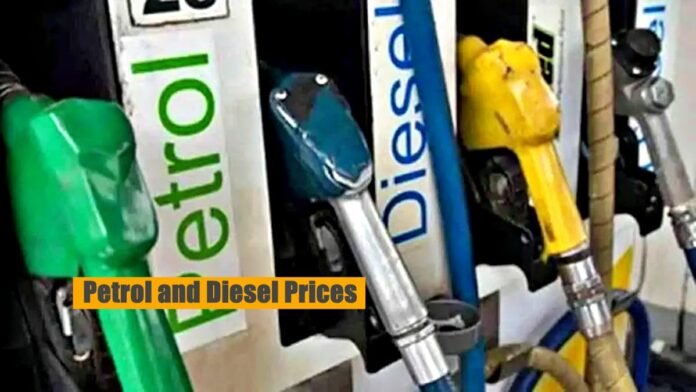
Key Points:
- Excise duty increased by ₹2 per litre: Petrol now taxed at ₹13 per litre, diesel at ₹10.
- No impact on retail prices: Government clarifies consumers will not face price hikes.
- Global crude oil prices fall: Brent crude drops below $65 per barrel, creating room for duty adjustments.
- Revenue boost for government: The hike aims to shore up funds amid economic uncertainties.
New Delhi: The Indian government announced a ₹2 per litre increase in excise duty on petrol and diesel, effective April 8, 2025, as per a notification issued by the Department of Revenue. Despite the hike, retail prices for consumers will remain unchanged, according to the Ministry of Petroleum and Natural Gas. This decision comes amidst falling global crude oil prices and aims to bolster government revenues.
Details of the Excise Duty Hike:
- The excise duty on petrol has been raised from ₹11 to ₹13 per litre, while diesel now faces a duty of ₹10 per litre, up from ₹8.
- The hike applies primarily to fuel meant for export and will not affect domestic retail prices.
Context of the Decision:
Global crude oil prices have been on a downward trend, with Brent crude dropping to its lowest levels since April 2021 at $63.35 per barrel. West Texas Intermediate (WTI) crude also fell sharply, recording a weekly loss of over 10%. This decline has created headroom for the government to increase excise duties without burdening consumers.
Impact on Consumers:
The Ministry of Petroleum and Natural Gas clarified that public sector oil marketing companies (OMCs) will not raise retail prices of petrol and diesel despite the excise duty hike. Industry insiders suggest that the drop in international oil prices could have been passed on to consumers through price cuts but was instead used to adjust the increased levy.
Market Reaction:
The announcement has sparked mixed reactions. While consumers are relieved about stable retail prices, critics argue that the government missed an opportunity to reduce fuel costs further. Shares of major OMCs saw minor declines following the announcement.
This move reflects the government’s strategy to balance revenue generation while maintaining price stability for consumers amidst global economic uncertainties.



















































